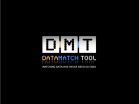Parkinson's disease patients may benefit from virtual-reality-based therapies
2011-07-12
Philadelphia, PA, July 11, 2011 – In people with Parkinson's Disease (PD), the inability to make quick movements limits basic functioning in daily life. Movement can be improved by various cueing techniques, such as providing visual or auditory stimuli when movements are started. In a study scheduled for publication in the August issue of the Archives of Physical Medicine and Rehabilitation, researchers report that virtual reality (VR) and physical reality exercises can be used to provide effective stimuli to increase movement speeds in PD patients.
Investigators from ...
Make Money While Having Fun Playing Poker at HerculesPoker
2011-07-12
A freeroll tournament requires no buy-in and anyone can play it for free. Because of the lack of deposit, playing freerolls is really a win-win situation as you can earn money without losing a single penny.
Such tournaments are excellent for novice poker players who are new to the game and these tournaments are good enough to improve a player's skills in a poker game. When playing free poker, there are certain approaches a player needs to learn in order to play the game strategically, and learning these can take some time. To get better, play freerolls and gain experience ...
New model for studying germ cell tumors in testes enlists embryonic stem cells
2011-07-12
Tampa, Fla. (July 11, 2011) – A team of researchers from Spain and Switzerland have developed a new model for studying the development of testicular germ cell tumors by transplanting embryonic stem cells into the seminiferous tubules in mouse models, resulting in the development of testicular germ cell tumors (TGCT) that mimic the early stages of TGCT development. The study, published in Cell Transplantation (20:5), is now freely available on-line at http://www.ingentaconnect.com/content/cog/ct/.
"Over the last fifteen years, cell transplantation into seminiferous tubules ...
'Resilience' of US metros measured by online index developed by UB researchers
2011-07-12
BUFFALO, N.Y. -- Which U.S. metro region is most likely to come out of the next recession, natural disaster or other regional "shock" relatively unscathed? Rochester, Minn. A little more battered might be College Station-Bryan, Texas.
These two regions are ranked first and last, respectively, by a new online tool measuring more than 360 U.S. metros for their "regional resilience," or capacity to weather acute and chronic stresses ranging from gradual economic decline to rapid population gains to earthquakes and floods.
The Resilience Capacity Index (RCI), developed ...
Amazing Hand-Crafted Polymer Clay Switch Plates 50% Off Clearance At Habitatter.com!
2011-07-12
Since 2008, Habitatter.com has been offering the highest quality in home decorating accessories, and Good Night Irene! has been with them since the beginning.
Good Night Irene! is a one-woman studio in beautiful Asheville, North Carolina who has been creating imaginative switch plates since 1992. Her designs reflect nature and all have texture to thrill your hands as well as your eyes. These light switch plates are made with polymer clay, a versatile and durable synthetic material, and cured directly onto plastic switch plates to ensure a perfect fit.
All good things ...
Epigenetic pathway and new drug show promise in reversing a hard-to-treat childhood cancer
2011-07-12
A difficult-to-treat form of childhood leukemia relies on changes in the structure of DNA – so-called epigenetic changes – to wreak genomic havoc within white blood cells, according to one of two studies conducted by a research team at Children's Hospital Boston and Dana-Farber Cancer Institute. Together with collaborators from a biotechnology company, the same team also showed that a new drug that blocks these changes could deactivate cancer-promoting genes and halt the growth of this cancer.
These studies, reported in a pair of papers in the July 11, 2011 issue of Cancer ...
Neural stem progenitor cell transplantation’s potential to aid spinal cord injury tested
2011-07-12
Tampa, Fla. (July. 11, 2011) – A study published in the current issue of Cell Transplantation (20:5) investigating optimal routes for transplanting neural stem/progenitor cells (NS/PCs) in animal models of spinal cord injury (SCI) has demonstrated that intralesional (IL) injection conferred benefits over intravenous injection (IV) and intrathecal (IT) injection. The study, by a team of Keio University (Japan) researchers, is now freely available on-line at http://www.ingentaconnect.com/content/cog/ct/ .
"Spinal cord injury usually results in severe, paralytic damage ...
Just like teens, parents get personal on Facebook
2011-07-12
They may not dress like Justin Bieber or Selena Gomez, but parents are a whole lot like their teenagers when it comes to their behaviour on Facebook. That's the finding of a new study by University of Guelph researchers.
Parents are just as likely as their kids to disclose personal information on the social networking site, according to the research, which will be published in the journal Social Psychological and Personality Science and is available online now.
And (gasp!) mom and dad are just as susceptible to the need for popularity.
"Facebook is not just a phenomenon ...
Sertoli cells show promise for therapeutics
2011-07-12
Tampa, Fla. (July 11, 2011) – Two papers published in the current issue of Cell Transplantation (20:5), now freely available on-line at http://www.ingentaconnect.com/content/cog/ct/, highlight the therapeutic potential of human Sertoli cells that are present in the testes and are also called "nurse" or "mother" cells because they nurture the developing sperm cells. Sertoli cells form the blood-testes barrier that separates the blood compartment of the testes from the compartment of the seminiferous tubules. Once differentiated to form the blood-testes barrier, Sertoli cells ...
The truth about cats and dogs: Pets are good for mental health of 'everyday people'
2011-07-12
WASHINGTON – Pets can serve as important sources of social and emotional support for "everyday people," not just individuals facing significant health challenges, according to research published by the American Psychological Association.
And, the study found, pet owners were just as close to key people in their lives as to their animals, indicating no evidence that relationships with pets came at the expense of relationships with other people, or that people relied more on pets when their human social support was poorer.
Psychologists at Miami University and Saint ...
Writing DNR orders takes longer, death more likely when surrogate decision-maker involved
2011-07-12
INDIANAPOLIS – Indiana University and Regenstrief Institute researchers report that it takes significantly longer for orders to forgo resuscitation in the event of cardiac arrest to be written for patients who had that decision made for them by a surrogate decision-maker compared to patients who made their own decisions, even though patients with a surrogate were sicker and the resuscitation issue might arise sooner. Among patients who died, patients with a surrogate had a shorter time frame between writing the DNR order and time of death compared to patients who made ...
Biofilters reduce carbon footprint of old landfill sites
2011-07-12
Researchers in the US are testing biofilter systems as a viable alternative to releasing methane from passive landfill vents into the atmosphere. The technology could reduce the overall impact of old landfills on global warming. Details are reported in the current issue of the International Journal of Environmental Engineering.
Organic matter rotting in smaller, old landfill sites generates a slow trickle of the potent greenhouse gas, methane, into the atmosphere, amounting to just 2 or 3 kilograms per day per vent. In contrast to controlled methane generate for biofuel ...
Aerospace Manufacturing in Mexico is the Subject of Offshore Group Podcast
2011-07-12
Carlos Bello, executive director of the Mexican Federation of Aerospace Industries, recently sat down with The Offshore Group to discuss the current state of affairs in Mexico's rapidly developing aerospace sector.
During the session, Bello informed that Mexico is currently home to 232 aerospace and aerospace industry related companies that employ a combined 29,000 workers. According to Bello, "In recent years, aerospace manufacturing in Mexico has been "experiencing a growth rate of about 20% annually, with the exception of 2009, which was a difficult year ...
EARTH: Is there really a minerals crisis?
2011-07-12
Alexandria, VA – China sent the high-tech industry and markets reeling last fall when it blocked exports of raw rare earth minerals to Japan, Europe and the U.S. The sudden severing of rare earths supply was a frightening prospect as the minerals are key ingredients in a broad range of high-tech products, from smartphones to wind turbines and hybrid cars. Although the bans have since been lifted, governments around the world saw the ban as a kind of wake-up call and started looking at ways to develop their own mineral resources — for rare earths as well as basic industry ...
Is a little negativity the best marketing policy?
2011-07-12
Tel Aviv — Most marketing departments work hard to establish a flawless reputation for their product or service. But new research from Tel Aviv University is showing that perfection is not all it's cracked up to be.
Dr. Danit Ein-Gar of Tel Aviv University's Faculty of Management at the Leon Recanati Graduate School of Business Administration, working in collaboration with Baba Shiv and Zakary Tormala from Stanford University, has uncovered the "blemishing effect," a counterintuitive benefit of negative information. When utilized in the right way, she says, a small flaw ...
New study highlights what works in osteoporosis treatment
2011-07-12
TORONTO, Ont., July 11, 2011—More patients are tested and treated for osteoporosis when fracture clinics have someone dedicated to screening for the bone disease, a new study has found.
Those patients also do better when the clinic actually provides bone mineral density (BMD) testing or prescription drug treatment as part of its program rather than just referring fracture patients elsewhere.
Researchers at St. Michael's Hospital led by Joanna Sale, a clinical epidemiologist, reviewed osteoporosis screening and management programs involving patients treated for fragility ...
Data Match Solutions Releases DataMatch Tool 2.0 - An Essential Software for Linking Databases
2011-07-12
Data Match Solutions today released DataMatch Tool 2.0, a very powerful software to match and merge databases. This software helps researchers, faculty and students to save valuable time and effort to collect and analyse data for their projects.
Academics can now take their research to a higher level
With DataMatch Tool 2.0 (DMT 2.0), researchers can link data from different sources easily and quickly and take their research to a higher level.
Based on their experience in academic research and their knowledge in data collection and analysis, researchers from Data ...
Natural pain relief from poisonous shrub
2011-07-12
An extract of the poisonous shrub Jatropha curcas acts as a strong painkiller and may have a mode of action different from conventional analgesics, such as morphine and other pharmaceuticals. Details of tests are reported in the current issue of the International Journal of Biomedical Engineering and Technology.
Omeh Yusuf and Ezeja Maxwell of the Micheal Okpara University of Agriculture in Umudike, Nigeria, explain how J. curcas, also known as the "physic nut" is a perennial shrub that grows to 5 meters in height and belongs to the Euphobiaceace family. It is native ...
Online consumers willing to pay premium for Net privacy, says study in INFORMS Journal
2011-07-12
Online consumers thought to be motivated primarily by savings are, in fact, often willing to pay a premium for purchases from online vendors with clear, protective privacy policies, according to a new study in the current issue of a journal of the Institute for Operations Research and the Management Sciences (INFORMS®).
"The Effect of Online Privacy Information on Purchasing Behavior: An Experimental Study" is by Janice Y. Tsai, Serge Egelman, Lorrie Cranor, and Alessandro Acquisti of Carnegie Mellon University. The study appears in the current issue of the INFORMS journal ...
All-cause mortality rates are lower among moderate drinkers than among abstainers
2011-07-12
The author of this paper set out to determine the extent to which potential "errors" in many early epidemiologic studies led to erroneous conclusions about an inverse association between moderate drinking and coronary heart disease (CHD). His analysis is based on prospective data for more than 124,000 persons interviewed in the U.S. National Health Interview Surveys of 1997 through 2000 and avoids the pitfalls of some earlier studies. He concludes that the so-called "errors" have not led to erroneous results, and that there is a strong protective effect of moderate drinking ...
Paddington Brands Launches 90+ Rated Agoston Spanish Red Wines Nationally Through Walgreens
2011-07-12
Paddington Brands announced today that it has launched its Agoston wine brand through Walgreens, the nation's largest drugstore chain. Bodegas Virgen del Aguila, the Spanish wine cooperative, confirmed Paddington Brands as the exclusive U.S. importer of Agoston wines.
"When we first tasted Agoston, we knew this was a wine that would appeal to American consumers," said J. Smoke Wallin, chairman and CEO of Paddington Brands. "Year after year Agoston has been receiving 90+ points in the Penin Wine Rating Guide, which is Spain's equivalent to Robert Parker ...
MU psychology study finds key early skills for later math learning
2011-07-12
COLUMBIA, Mo. – Psychologists at the University of Missouri have identified the beginning of first grade math skills that teachers and parents should target to effectively improve children's later math learning.
A long-term psychology study indicates that beginning first graders that understand numbers, the quantities those numbers represent, and low-level arithmetic will have better success in learning mathematics through the end of fifth grade, and other studies suggest throughout the rest of their lives.
"Math is critical for success in many fields, and the United ...
Research shows 'BPA-free' bottles live up to manufacturers' claims
2011-07-12
CINCINNATI—The alarm caused by bisphenol A (BPA) presence in reusable plastic bottles resulted in a recent industry change, producing products made with supposed BPA-free materials.
Prompted by requests and concern from consumers, University of Cincinnati (UC) researchers wanted to see if these alternatives—including products made with stainless steel and coated aluminum—were truly giving the consumer an option free of BPA.
In a study reported in the July 8, 2011 advance online edition of the journal Chemosphere, Scott Belcher, PhD, associate professor in the pharmacology ...
Drinking until you forget leads to injuries for college kids
2011-07-12
CHICAGO --- "I don't remember how I got home from the party." This could be a text from last night to one hard-partying college student from another.
New research from Northwestern Medicine shows that 50 percent of college drinkers report at least one alcohol-induced memory blackout -- a period of amnesia -- in the past year during a drinking binge. Despite being fully conscious during such blackouts, students could not recall specific events, such as how they got to a bar, party or their own front door.
Published in Injury Prevention, May 2011, the study found college ...
'Healthy' habits linked to childhood obesity in China
2011-07-12
Teenaged boys from well-off Chinese families who say they are physically active and eat plenty of vegetables but few sweets are more likely to be overweight, according to a study led by researchers at the Keck School of Medicine of the University of Southern California (USC).
The study, published in the July 2011 issue of the American Journal of Health Behavior, is one of the first to examine how weight among Chinese adolescents relates to factors like sleep duration, physical activity, diet and general demographics. Most of what the research team found runs counter to ...
[1] ... [7066]
[7067]
[7068]
[7069]
[7070]
[7071]
[7072]
[7073]
7074
[7075]
[7076]
[7077]
[7078]
[7079]
[7080]
[7081]
[7082]
... [8801]
Press-News.org - Free Press Release Distribution service.









